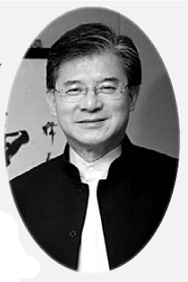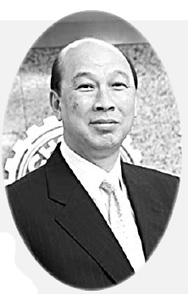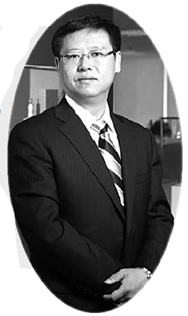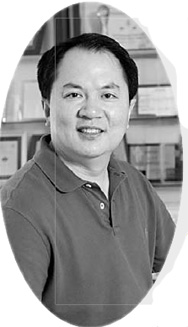Top Biz News
2009 'Entrepreneur of the Year' awards
(China Daily)
Updated: 2009-11-03 08:25
Vincent Lo, chairman of Shui On Group. Real Estate Category Winner

Vincent Lo comes from a real estate background and started out independently in 1971, borrowing HK$100,000 ($13,000) from this family to start Shui On, a property business, when he was just 23. His first big breakthrough came in his first two years in business when he beat the odds to win a government contract to build public housing in the northwestern outskirts of Hong Kong. From that point, Shui On continued building a reputation as an innovative property developer in Hong Kong and the Chinese mainland. He has two Hong Kong listed companies, Shui On Land Ltd and Shui On Construction and Materials Ltd.
Lo entered the Chinese property market early, in 1984, giving him an advantage over other developers. Key wins in China include the Xintiandi development in Shanghai, a modern landmark in Chinese property development. At Xintiandi, Lo gave an ageing residential area an entirely new lease of life by turning it into a modern multifunctional hub, combining commercial, retail, leisure and residential elements.
Lo continues to be invited by local governments to advise on their city redevelopment and regeneration projects.
Q: What is your view of the entrepreneurial spirit?
A: An entrepreneur should have vision, the ability to improvise and confidence in him or herself. He or she should also have a little inclination toward gambling in his blood.
Q: What was the most important to you when starting your own business?
A: The most important thing was to have confidence in yourself. Starting your own business has many difficulties, but you should persist and realize your own dream and vision.
Q: Can you share with us some of the most valuable experiences from operating your own business?
A: I don't agree with using family-style management to run a company, so I have built Shui On Land to be a professionally managed company, which I feel very satisfied about.
Q: What's the fundamental driving force behind the rapid growth of Shui On Land?
A: Our company spirit is in trying to do everything well and to do it whole-heartedly. I think that's an important way of ensuring our continued growth.
Q: What does your career success mean to you?
A: It provides me with great satisfaction, especially when I can realize some of my dreams - such as developing the Shanghai Xintiandi as a new landmark in the city.
Q: What does it cost to be successful?
A: The cost is that you have work for long hours with very little personal time. I don't have enough time to spend with my family.
Q: What are your expectations for the future of your company and for yourself?
A: I hope that the company will continue to grow and expand. I hope the company will do even better once I retire.
Q: What is your advice to young people who want to start their own businesses?
A: You must know yourself, trust yourself and persevere.
Clement Hui, chairman of Dah Chong Hong Holdings Ltd. Retail & Consumer Products Category Winner
Clement Hui has been driving Dah Chong Hong's growth and direction over the past 40 years. His bold approach has helped him rise to the top of the company, which he joined in 1966 as a young management trainee.
His first major achievement was his success in introducing Isuzu trucks into Hong Kong. Hui has been instrumental in ensuring Isuzu has remained the market leader in trucks in Hong Kong for the past 20 years, consistently holding nearly 50 percent of the market.
DCH has grown to become a conglomerate with operations in motor vehicles, food and consumer products and logistics in Hong Kong, the Chinese mainland, Singapore and Japan. DCH motor dealerships include Audi, Bentley, Honda, Isuzu and Nissan. In the food sector, it distributes several well-known brands, including Pocari Sweat and Twinings. On the consumer goods front, it distributes Shiseido and Electrolux, among others. It also operates a retail chain selling frozen foods.
Hui was something of a pioneer in China, helping pave the way for sustained growth for DCH over the years. The company's turnover has increased more than 38 times from the 1980s to HK$19.6 billion in 2008. The company has been consistently recognized as a Caring Company by the Hong Kong Council of Social Services.
Q: What are the events in your company's history that you feel most proud of?
A: I believe that after Hong Kong's return to the Chinese mainland, Hong Kong businesses benefited from access to the open market on the Chinese mainland. Our business in Hong Kong was not all plain sailing though. We went through several difficulties, including the Asia financial crisis in 1997, the SARS epidemic in 2003 and the recent financial crisis. All of these hit Hong Kong entrepreneurs hard. Different companies had different ways to deal with the crisis. Some survived, some failed. We are lucky to have many experienced people in our company, who were able to adjust our strategy in line with changing circumstances and finally solve the problem - turning the crisis into an opportunity.
Q: What does career success mean to you?
A: In a commercial society, money is very important. Yet you will gain greater satisfaction, if you accept a challenge and accomplish it step by step, in line with your own strategy.
Q: What is the cost of being a successful entrepreneur?
A: I guess that most people will suffer from a lack of time, which will affect their family and health. In my opinion, if an entrepreneur cannot balance these things, then he or she is not truly a successful entrepreneur.
Q: What is your advice to the young people who want to start up their own businesses?
A: I suggest that young entrepreneurs discover both their strengths and weaknesses. Don't take more on yourself than you can manage. Also, they must be bighearted and willing to accept criticism, which will help them make progress. Additionally, they must be able to recruit talented people and organize a good team.
Wu Xiangdong, chairman of VATS Group. Retail & Consumer Products Category Winner

In 1996, Wu Xianglong set up Jinliufu Winery as a trader of liquor products. In 1999, Wu obtained the Hunan distribution rights to Chuanjiuwang, a traditional Chinese liquor owned by Wuliangye. Through his marketing efforts, it wasn't long before sales of Chuanjiuwang in Hunan ranked the highest among all regions in China.
Following the success with Chuanjiuwang, Wu registered Jinliufu as his first trademarked product. Wu outsourced the distilling to Wuliangye, enabling Wu's company to focus on the product marketing and branding aspects of the business.
Wu has continued to pursue this business model by acquiring other liquor brands in various regional markets in China and currently has a portfolio of more than 20 well-known domestic brands.
In 2006, Wu established VATS Group as a holding company for Jinliufu and other liquor products. In 2009, turnover reached 4 billion yuan.
Q: What do you think it costs to be a successful entrepreneur?
A: For me, running a business is like a marathon, you have to be prepared for a long-term race. As it will take a long time, you must have a strong body and tremendous vigor - and the capacity for participating in a continuous competition.
Q: Would you like to share some of your most useful experiences?
A: We always abide by being honest and showing integrity when doing business. Prestige and credibility is in the lifeblood of our company and is the ultimate guideline for every employee. We have thousands of clients and we take every complaint seriously. So far, all of our employees and clients endorse our excellent reputation.
Q: What is your view of the financial crisis? Do you think it has deeply influenced the operation of the business world?
A: Among business people, everyone has been affected more or less. The common thing brought about by the crisis is an understanding of the whole economy. The operation of the economy is just like planting crops - the harvest varies in different years. For entrepreneurs around the world, the financial crisis is a new experience.
Q: Have you seen signs of a new round of recovery? In which specific industry will we see recovery first?
A: According to the statistics of the wine industry, over the past few months, sales numbers have showed a year-on-year growth. You could say the wine industry is recovering. Regarding the whole country, I think the earliest recovery will take place in infrastructure as well as some companies that have transformed themselves. Growth is now visible.

David Sun, chief executive officer of Home Inns & Hotels Management Inc. Services Category Winner
David Sun has been the influential leader of Home Inns since 2005, steering the business from being a privately owned company to become China's first overseas listed hotel chain. Under his leadership, Home Inns has overtaken its competitors to become the largest budget hotel chain in China, in terms of properties and rooms. It has grown from 68 hotels in 2005 to almost 550 hotels now. Sales have increased six times over the same period.
His success lies with his uncompromising belief in providing exactly what cost-conscious travelers want by focusing on the basics - providing a good clean room with easy booking and efficient service. He has ensured the hotel chain has adopted a consistent, standardized approach to each property, saying: "Wherever you go, you always feel at home."
Home Inns came 21st in the global Top 50 hotel rankings in 2008. In the aftermath of the Sichuan earthquake in 2008, he started a fundraising campaign to collect funds to rebuild school facilities in Sichuan.
A: I think it's mainly about belief and persistence. When you start to do something, there are a lot of uncertainties ahead. You can move forward only if you firmly believe in what you are doing. You will also face many difficulties and your ability to solve these problems step by step is very important.
Q: What's your advice to those who decide to start up their own businesses?
A: Firstly, don't do things blindly. You should not start businesses just because someone has become a billionaire by doing something similar. You have to figure out why you want to start a business and set a clear goal. Also, you have to prepare for the worst and target your efforts in the best direction. Starting up a business is really hard work and requires tenacity. You have to believe in your direction and keep trying.
Q: What is your plan for the future development of your company?
A: We hope to have 1,000 hotels in more than 150 cities across China by 2011 and maybe 2,000 hotels further down the line. We also hope to get into the top 10 in the global hotel industry.
Aside from goals that can be measured by numbers, we also have objectives at the spiritual level. A company's market value can ultimately be translated into a social value. What we feel happy about now is that we can provide products that are really worth the money to ordinary Chinese people during their business trips or holidays. Our larger ambition is to be a leader in China's economy hotel sector and to offer convenient services to more ordinary people.













